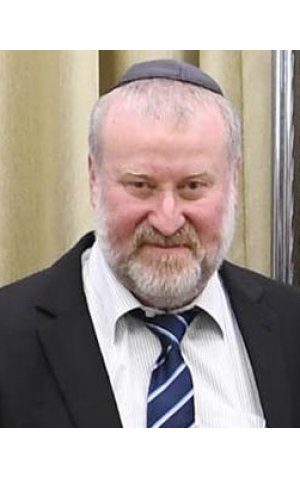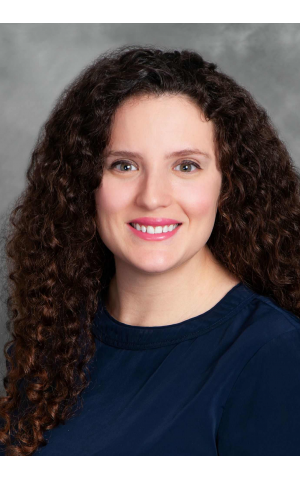Netanyahu’s Future with Fraud and Bribery Charges on the Horizon
As Prime Minister Benjamin Netanyahu faces indictments in three cases of alleged corruption, Atlantans expressed varying levels of faith in the Israeli justice system.
As Prime Minister Benjamin Netanyahu faces indictments in three cases of alleged corruption, Atlantans expressed varying levels of faith in the Israeli justice system.
“Israel has a robust judiciary and a great respect for the rule of law,” said attorney Jonathan M. Minnen, a partner with the international law firm of Smith, Gambrell & Russell, LLP.
“Israel is the only democracy in the Middle East and thus people and governments overseas should respect and defer to the Israeli legal and political institutions to address the internal affairs of Israel,” added Minnen, who founded the firm’s Israel practice in 2000, and is currently co-head of that group.

Israeli Attorney General Avichai Mandelblit’s decision to indict the prime minister in three separate cases, which he outlined in a 57-page document, came after more than two years of investigations by Israeli police. Prior to announcement of the pending indictments Feb. 28, Netanyahu repeatedly had stated that “there will be nothing because there is nothing.”
In Israel, a defendant is notified of potential charges, then a hearing is held at which the accused can challenge a pending indictment. When they go to trial, cases are decided by judges, not juries.
Those hearings are expected to take place after the April 9 Israeli elections, in which Netanyahu is facing his strongest competition in a decade.
The charges pending against Netanyahu include two cases of fraud and breach of trust, and a more serious charge of bribery in a third case. The latter includes a label of “moral turpitude,” which would bar Netanyahu from running for office for seven years after completing any prison or community service sentence if found guilty.
Case 1000, as it’s known, alleges that Netanyahu accepted expensive gifts from wealthy benefactors in exchange for favors. Case 2000 charges that the prime minister conspired with the publisher of the Israeli newspaper Yediot Ahronot to receive flattering coverage in exchange for Netanyahu’s pressing a competing newspaper, Israel Hayom, to curtail its free circulation. The latter is owned by Sheldon Adelson, the American billionaire casino owner who has long been a Netanyahu supporter. Yediot’s publisher, Arnon Mozes, also faces indictments in that case.
Case 4000 is considered the most serious because it alleges that Netanyahu had a quid pro quo relationship with the majority owner of Israel’s biggest telecom firm, Bezeq, who is also the owner of the Walla! news website. Much of the attorney general’s indictment document dealt with this case, in which the prime minister is alleged to have sought favorable coverage for himself and his family in exchange for intervention in regulatory decisions that benefited the Israeli tycoon by as much as $500 million.

The timing of Mandelblit’s announcement cast the indictments in political, rather than solely legal terms.
Atlanta native Rachel Broyde is working for Netanyahu’s Likud Party, in charge of outreach to English-speaking immigrants. Explaining her mission, Broyde said, “It’s important that Likud make it clear to voters that the allegations will be dismissed after the election, so they shouldn’t throw away their votes on smaller parties.”
Speaking from Israel, Broyde asserted that “the media and the left had been pounding the attorney general and pestering him” to indict Netanyahu. She called the investigation a “witch hunt.”
Broyde is the daughter of two attorneys, one of whom is Michael Broyde, professor of law and the academic director of the Law and Religion Program at Emory University.

Another Atlantan who questioned the motivation behind the cases was political consultant George Birnbaum, who worked as the prime minister’s bureau chief in the 1990s, during Netanyahu’s first term leading the country. “While the allegations against Prime Minister Netanyahu are serious to be sure, like in the United States, the accused in Israel is innocent until proven guilty. This can be especially true among politicians as I saw firsthand 10 years of a 17-year investigation against my friend and client, former Minister of Defense and Minister of Foreign Affairs Avigdor Lieberman. For 17 years, police and the justice system investigated Mr. Lieberman, always amplifying the investigations prior to an election. In the end, he was finally acquitted of any wrongdoing.
“I saw firsthand in 1999, as Mr. Netanyahu’s bureau chief, how the police worked hand-in-hand with journalists to undermine Mr. Netanyahu with trumped up charges following his election defeat. In Israel, in my opinion, the police investigative unit has too much power and has allowed political motivations to enter into (the) process. We certainly must allow the legal process to take place. But we must do so with an understanding of how the police, the journalists and justice system are sometimes too closely linked to one another,” Birnbaum said.




comments